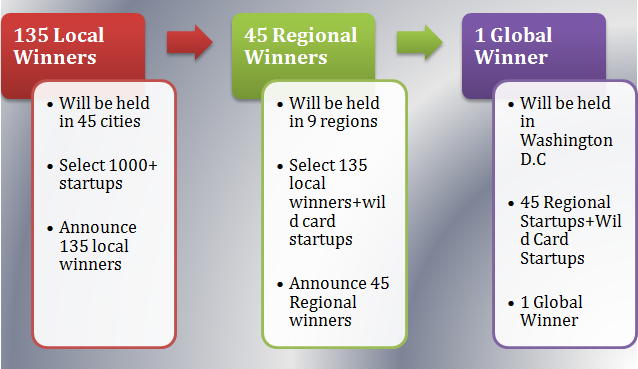![indian-women-entrepreneurs]()
“Whatever you do, be different – that was the advice my mother gave me, and I can’t think of better advice for an entrepreneur. If you’re different, you will stand out.” – Anita Roddick
Nothing could be truer for the women entrepreneurs of today who are chartering unknown territories unabashedly and fearlessly. Be it in ecommerce, education, investing, travel, fashion, retail, fitness, hiring, and anything and everything under the sun, they are proceeding with gumption and unbridled enthusiasm to change the world around them, make a difference with their ideas, seek solutions that have never been sought, fight diseases and social norms, run successful ventures and generate employment for many, and give rise to new sustainable ecosystems.
Each of them is scripting her own success story in today’s new age world. On Women’s Entrepreneurship Day, we bring to you the journeys of some of these dynamic Indian women, who have set benchmarks in their chosen fields.
Maya Angelou has said, “I love to see a young girl go out and grab the world by the lapels. Life’s a bitch. You’ve got to go out and kick ass.”
Hats off to all of these women entrepreneurs!
Arpita Ganesh or more popularly known as the ‘Indian Bra Lady’, found her calling in a unique vocation – creating a lingerie brand that will help women find their right size, fits and styles, all at affordable prices. After experiencing a bra-fitting session in New York, Arpita was ready to leave her 10 years long career in advertising to make a dent in the Indian lingerie market. She founded Buttercups in 2008, India’s first high-end lingerie brand that retailed international labels and provided personalised sizing, to fitting, to consultations based on one’s requirements.
The startup has provided fitting sessions to more than 3000 women, and was crowd funded in its early stages. This year, in June, it raised angel funding from Kanwaljit Singh, Angie Mahtaney and others. Buttercups is proof that anything done with passion, however challenging it may be, will find takers.
Two years ago, Rashi Menda would look into her closet with an assorted collection of unopened, unworn shopping bags sitting on the floor – and still find herself saying, ‘I have nothing to wear!’ Just like Rashi, millions of Indian women stock their closets with stuff worth over one billion dollars every year and still have nothing to wear. Wanting to change that, Rashi went ahead and launched Zapyle, an Instagram like fashion marketplace to discover, sell and buy pre-owned fashion attire.
Zapyle assists preloved clothes and accessories in finding new wardrobes, so nobody will ever feel that they have nothing to wear, but rather have fun wearing it. The startup has raised $1 Mn in a funding round this September. Rashi holds a BSc in Economics-Finance from University of Minnesota, and before founding Zapyle, she had worked with Ernst and Young in the Tax and Risk analytics, and later for an ecommerce startup Unamia catering to apparel for kids.
After studying Big Data and Analytics in 2009 from Carnegie Mellon University, Manisha Raisinghani, worked in the logistics space while working as a consultant for IBM Consulting. Interested by the ORION (On-Road Integrated Optimization and Navigation) software used by trucks in the UPS for logistics, she along with Dhruvil Sanghvi, who had attended the course with her, got thinking how they could replicate the UPS technology in other countries. In January 2014, the duo quit their jobs and invested over $70K into building a product from ground up in about six-seven months. Thus, was born LogiNext Solutions in August 2014. A year later, about 60 companies have started using its services including the likes of Flipkart and Paytm. In its latest round, it has snapped $10 Mn funding from Paytm.
![priyanka and namrata]()
After completing her graduation from Lady Shri Ram College, Priyanka worked as a fashion journalist for several years before pursuing her Masters from Kings College, London.
In late 2012, Priyanka met Namrata Bostrom, and since both of them were looking at digital content space for women, they came up with the idea of digital lifestyle magazine for women and co-founded Popxo.com in early 2014.
The startup has recently raised approximately $2 Mn in its Series A funding round this November to broaden its editorial operations in English and Hindi language. According to the projections, Popxo will have 300 Mn women users by the end of 2020.
Naiyya Saggi is a graduate from the Harvard Business School (MBA 2012), where she was a Fulbright and J.N. Tata scholar, and worked for more than four years at McKinsey & The Bridgespan Group in Boston. When a lot of her friends became parents and were baffled with the new experience looking for answers, she noticed multiple Facebook groups that were strewn with questions ranging from parenting to paediatrics. This Harvard scholar was then inspired to launch BabyChakra – a platform that helps parents discover and connect with local services relevant for maternity and childcare.
BabyChakra was launched in November 2014 and is the fastest growing platform for Indian parents today. BabyChakra helps parents discover and connect with local services relevant for maternity and childcare. It has quickly scaled to cover three cities in India – Mumbai, Bangalore and Delhi, and has raised an angel round of funding led by Mumbai Angels this June.
After graduating from Thapar University, Aditi got an MBA from the University of Chicago and founded Embibe, in 2012. With a view to disrupt the education space in India, Embibe focuses on technology and data combination to help students prepare better for the competitive examinations.
The inspiration to start Embibe stemmed from Aditi’s own challenges whist she was taking competitive exams way back in 1999 and lack of proper resources to aid exam preparation that time. Embibe focuses on creating a personalized preparation routine for the user, employing technology as an aid. After raising $4 Mn from Kalaari Capital and venture fund Lightbox, the Mumbai-based ed-tech startup had acquired 100Marks, a student guidance platform for JEE Main, Advanced and Medical, in an all cash stock deal.
If you are even a wee bit familiar with the venture capital investing space in India, it is hard to miss out on one name in particular, Vani Kola, Managing Director of Kalaari Capital. Born and educated in Hyderabad, Vani got her bachelor’s degree in electrical engineering at Osmania University and then left to get a masters degree from Arizona State University, spending 22 years in the US. Kola co-founded Kalaari, after successfully building and selling two companies, Certus and Rightworks in Silicon Valley.
In 2006, she returned to Bangalore, founding Kalaari Advisors in 2006 to create an early-stage venture ecosystem in India. To date, Kalaari Advisors has funded more than 50 companies in India. Vani focuses on technology companies, leveraging India’s domestic growth to create high growth enterprises. No wonder, she has been identified as one of the top 10 entrepreneurs in Silicon Valley, and was listed as one of the most powerful women in Indian Business by Fortune India last year.
Shuchi Pandya is the founder of Pipa+Bella, a fast-fashion brand of fashion jewellery, offers women with well-curated collections which are available at affordable prices. Growing up in a family of jewellers, studying marketing at the Stern School of Business, and then MBA from Wharton, she started developing her idea for Pipa+Bella and building a tech-based business, and ultimately founding it in 2013. The startup has recently raised $600K in a pre-series A round, led by Singapore’s Lionrock Capital this July.
Tired of complaining about Delhi that it was a boring city and its people were dull, Suchita Salwan, at mere 22 years, decided to change that mindset, and started hunting for people, things, and places that made Delhi interesting and brought to fore its bright side. Thus, was born Little Black Book Delhi (LBBD), a site which has quickly become the go-to place for curated discovery of Delhi’s culture. The site now incorporates events, curated city tours, and weekend checklists. It has raised a seed investment of $150,000 from a group of angel investors, this June.
If you track the startup ecosystem in India, it is unlikely that you haven’t heard of YourStory and Shradha Sharma, who founded the online media venture for Entrepreneurs and Startups in 2008. She is a graduate from St. Stephens College, worked with the Times Of India as Brand Advisor, and later with CNBC TV18 as Assistant Vice President. YourStory along with its sister platforms, HerStory, SocialStory, YS TV, YS Research and YS Pages, have reached 60 Mn engaged readers. The company has hosted over 220 events across YS Meetups, TechSparks, MobileSparks and SheSparks. These events have had a direct impact on over 1.7 Mn people. In August this year, it raised close to $3 Mn in its Series A round of funding led by Kalaari Capital, with participation from Qualcomm Ventures, T V Mohandas Pai and Ratan Tata.
Nidhi Agarwal is the founder of Kaaryah, a brand of western, non-casual wear for Indian women,aims to provide the best possible fit with its 18 sizes. The brand aims to bridge the gap between western formals and the Indian silhouette. An MBA from Kellogg School of Management, and a certified Chartered Accountant by education, Nidhi, decided to found Kaaryah back in 2010 when she was working as a strategy consultant. On the way to the airport for a client meeting, she spilled coffee on herself and struggled to replace her shirt with a simple white shirt of a right fit at the mall. That experience triggered her to found Kaaryah. This June, the startup has raised its Series A investment from Ratan Tata.
Meena Ganesh, CEO of Portea Medical, a provider of home healthcare services in India, is a woman who has donned many entrepreneurial hats. An undergraduate degree in Physics from Madras University and an MBA from Indian Institute of Management Calcutta, Meena, started her career at NIIT, and went on to work at PricewaterhouseCoopers and Microsoft. In 2000, she co-founded Customer Asset, a call centre and BPO company, with funding from Softbank Capital and Newscorp. Customer Asset was acquired by ICICI Bank in 2002, and later re-branded as Firstsource. Post that, she worked at Tesco as CEO of its India operations, setting up its IT and back office hub in India.
After five years with Tesco, she joined Tutorvista, an online tutoring company founded by her husband, as a co-promoter. Pearson Education acquired a majority stake (around 76%) in TutorVista in 2009. In July 2013, the husband wife duo Meena and Krishnan Ganesh acquired Portea Medical, a healthcare firm based in New Delhi, after which Meena moved in as the CEO. Portea Medical operates across 24 cities and handles 60,000 visits in a month to patients’ homes. This September, it raised $37.5 Mn in a Series B round of funding led by Accel Partners.
Kanika Tiwari is the co-founder of JetSetGo – India’s first online marketplace for private jets and helicopters launched in 2014. Leveraging her more than eight years of experience in the aviation industry, Kanika realised the frustration of customers while dealing with charter brokers and operator due to the fact that due to sheer lack of transparency and non-availability of charter planes, customers pay astronomical amounts. It was from here, that the idea to develop JetSetGo started.
JetSetGo is fundamentally re-defining the private aviation business, by seamlessly creating marketplaces that join the dots between charter customers and operators on one hand and service providers with operators on the other. It recently raised funding from Yuvraj Singh’s debut startup fund, YouWeCan Ventures, in July this year. For Kanika who has beaten cancer to and is now entering unchartered territory, the flight to greater heights has just begun.
Lavanya Venkatraman is a NIFT graduate and did her master’s degree from the London College of Fashion. She had a stint at EU SERVIVE and was also a manager in the marketing team for business alliances at Myntra. Post that, she teamed up with Vasudevan Thrikkazhippurath, and Ashish Singhal to form Urban Tailor, a professional tailoring service for women which comes at the click of a button. With the advent of on-demand marketplaces, almost any errand can be run at the swipe of a hand. However, the tailoring industry is still stuck in the dingy city lanes, where the masterji’s promises are big, but deliveries are always late and far from our expectations.
Sensing this need, Bangalore-based startup, Urban Tailor, wants to address this unmet need and further guarantee perfect fit and on-time delivery with convenient pick-up & delivery at your doorstep. The startup has raised recently raised its seed funding led by a group of angel investors (mostly ex-Myntra executives).
Given her experience of more than 15 years in the travel space, it was but natural that Nidhi Varma would do something in that domain when it came to starting her own venture. And she did. In order to address the points of travellers about in-depth information about tourist places, this commerce graduate from the Narsee Monjee College of Commerce & Economics, launched Guiddoo, an in-destination travel app along with Vineet Budki in 2013.
The mobile app provides an in-depth and highly researched audio visual guide to world famous monuments and attractions such as the Taj Mahal, Statue of Liberty, The Colosseum, Eiffel Tower and Angkor Wat, as well as modern monuments like the Burj Khalifa. The company has curated content for over 300+ monuments, attractions and locations around the world with the app seeing over 100K downloads. This year, Guiddoo, raised an undisclosed amount of seed funding from a group of angel investors.
![presha and shweta]()
Shweta Singh & Presha Paragash are founders of Sol Primero, an early stage investment firm dedicated to partnering with ambitious entrepreneurs addressing large opportunities that require innovation. Both of them are Wharton MBA graduates, and also have 5 years of investment banking experience at UBS Investment Bank in London. Shweta has also worked with the restaurant discovery platform, Zomato, in the International Operations team where she oversaw the launch of the business into several new geographies.
In 2014, they came together to set off in a new direction, launching their own investment firm Sol Primero. Till date, it has invested in startups such as Cubito, Curofy, JustRide, Zostel and Plabro to name a few.
YourDOST is a technology startup of a unique kind- it aims to establish a unique platform for mental wellbeing and emotional support. The startup connects experts to people who look to discuss any kind of emotional issues, while providing them required anonymity. Founded by Richa Singh, an IIT Guwahati alumnus, in partnership with Puneet Manuja and Prakhar Verma. The startup aims to create awareness and reduce the stigma associated with mental wellness in our society.
Richa is confident that technology combined with empathy and right kind of experts will go a long way in helping people going through a various emotional and mental challenges and equipping them to better deal with it. No wonder, YourDOST has close to 70,000 users which is growing at about 40% month-on-month basis. With 10,000 registered users, currently, a team of 75+ experts service around 300 one to one interactions on a daily basis. Recently, it raised close to $400K in an angel round of funding from angel investors.
Anisha holds a master’s degree in political communication and an MBA degree in Information Systems from the American University.. She started her career with the Clinton administration where she helped women entrepreneurs raise funding for their ideas. Later, she worked at Centra software in Boston before returning to India.
After working for years, she became an entrepreneur when she founded mydala.com in 2009.
Delhi-based Mydala is a marketing portal which connects merchants and consumers and allows users to purchase offers from different brands via ecommerce. The startup recently made headlines when it was reported that Chinese internet search giant, Baidu, is interested in buying majority stake in the company. Anisha co-founded Mydala with Ashish Bhatnagar and Arjun Basu last being in 2011 taking total funds raised by it to $6 Mn.
At a young age of 16, Swati obtained a scholarship to study in Singapore, and had pursued her graduation from London School of Economics. After working with Goldman Sachs in London, Swati founded Pouring Pounds with her husband Rohan Bhargava in July 2010. Later, the duo launched cashback website, Cashkaro.com, in November 2012. Headquartered in Gurgaon, the company raised $3.7 Mn in November from Kalaari Capital. Prior to that, Cashkaro had received a funding of $750,000 from angel investors. Associated with various startup and tech initiatives, such as the Nasscom 10,000 girls in tech, Sheroes and TiE, Swati is also well known for her social media activities.
Richa, an engineering graduate from BITS Pilani, before founding Zivame.com, had worked with several global retailers.
Bangalore-based Zivame online store for lingerie products, which Richa founded in 2011. In 2015, Zivame garnered a lot of attention when it raised $40 Mn led by Zodius Technology Fund and Khazanah Nasional Berhad. It also saw participation from Unilazer, IDG Ventures and Kalaari Capital. The cherry on top came later when Ratan Tata had invested in the company before it was out to raise its series C round.
Priya Maheshwari – a master degree holder from University of Pennsylvania.She had worked as a policy expert in New York and later moved to Bangalore. She co-founded Properji.com along with IIT Alumni Guruprasad Bangle, Umesh Rangasamy and Naveen Galithoti in August 2013.
The startup aims to introduce transparency and professionalism in the property market. With features like Fraud Protection Scheme and Buy-back Guarantee, the startup claims to provide research based facts to guide the buyer to buy the perfect house of their dreams.
As early as in 2014, the startup had close to 800 users, and had helped its users to buy properties worth over INR 20 Cr.
Radhika had done her MBA from Washington University. Radhika co-founded Shopclues.com in 2011 with Sanjay Sethi, Devesh Rai G, Vishal Sharma and her husband Sandeep Aggarwal.
Backed by Helion Venture Partners, Nexus Ventures and Netprice’s CEO Teruhide Sato, the startup has recently raised $100 Mn in series D funding. They have close to 33,000 partners and are expanding tremendously.
Falguni has a degree in economics from Sydenham College of Commerce and Economics and Post graduate diploma IIM Ahmedabad. A veteran in the field of financial planning with an experience spanning over 25 years, Falguni, eventually, quit her job to be an entrepreneur. She launched Nykaa – a women centric ecommerce portal providing beauty and wellness products in April 2012. Focused on providing the best beauty and wellness products, the startup targets the urban women of the modern India. Nykaa.com raised undisclosed sum through private investors including NRIs and HNIs.
A graduate from St. Xavier’s College, Preeta Sukhtankar co-founded The Label Corp. The company focuses on celebrity expertise for suggestions and acts like an “editorial” brand. Working with celebrities like Suzanne Khan, Malaika Arora Khan and Bipasha Basu, the startup has further plans to expand its celebrity portfolio, and to create virtually real-time environment for its users, with the expertise of top celebrities in the industry. Label Corp is backed by Kalaari Capital.
Pranshu, a graduate from NMIMS, Mumbai, co-founded CultureAlley along with Nishant Patni and a team of six other in December 2012. CultureAlley provides audio-visual lessons to help its users learn language at the comfort of their homes. Personalised in real-time to serve to the needs of the user, it can be accessed even while browsing Facebook or Twitter.
CultureAlley has received $345K in total from angel investors in three rounds of funding. The startup has a userbase of over 400 thousand users in 220 countries, around the globe.
Sairee, the founder of Sheroes.in, is on a mission to empower women. Sheroes helps women find a suitable job. Sheroes recently raised $770K in an angel round of funding led by Ragahv Bahl & Ritu Kapur’s Quintillion Media (publishers of TheQuint.com) and 500 Startups. The round also saw participation from from Vijay Shekhar Sharma of Paytm, Rajan Anandan , Flipkart’s Binny Bansal, Mekin Maheshwari, Girish Mathrubootham, Indus Khaitan and Krishna Mehra.
Sakshi is an engineering graduate, had worked with several software companies including Sapient technologies, Technoapex and Web sanchar, before she co-founded ‘Posist’ with her husband, Ashish Tulsian in September 2011.
Posist is an SaaS-based eatery management system for the country’s growing restaurant industry. The main features include customer relationship management, inventory, delivery, take-away and table orders. The web-based service provider had raised approximately INR 3 Cr. via LetsVenture and plans to expand its user base over the country.
Limeroad was started in 2012 by Suchi along with Manish Saksena, Ankush Mehra and Prashant Malik. The company has raised a funding of $20 Mn from Lightspeed venture partners, Matrix partners and Tiger Global.
Limeroad, a fashion discovery portal,provides users with latest range of products and accessories, 80 percent of which are unique to their own portal. It has a product listing of over 200,000 products.
One the most common taboos is Menstruation, but with time, it is getting the attention that is needed for the society to accept the fact and talk openly about it. One such initiative has been taken by Aditi Gupta. In 2012, she co-founded Menstrupedia with Tuhin Paul, a crowdfunded initiative. The company provides a resourceful guide about menstruation which helps women to stay healthy and active during their menstruation.
Upasana Taku is a graduate from NIT Jalandhar and masters in management science and engineering from Stanford University. She started a career in payments and financial services which spanned a period over eleven years.
She is the Director and CEO at Zaakpay.com and apart from her job, Upasna, co-founded MobiKwik with Bipin Singh in 2009. Mobikwik has recently raised $25 Mn in its Series B round of funding from Tree Line Asia and others. It was reported that the company is now planning to raise another $100 Mn for its next round of funding.
Valerie, an Stanford University alumni has been a part of companies like eBay, Ning and SayNow. In 2013, she was also named as the top innovator under 35 for India by MIT.
In 2010, she founded ZipDial which is a leading mobile analytics and marketing platform.
The company received an undisclosed amount in three different rounds of funding, before getting acquired by Twitter.
Shubhra Chadda co-founded the Bangalore-based startup Chumbak with her husband, Vivek Prabhakar, in the year 2010. The company offers attractive products which include accessories, phone covers and other lifestyle products. Initial investment in the startup was fulfilled by Shubhra and Vivek after they sold off their house to raise INR 45 Lakh. In 2014, the company had raised $2 Mn from Matrix Partners and Seedfund. Earlier in 2013, the startup had raised its seed round of funding from Seedfund itself.
After graduating from Delhi University, Malini had worked with several media giants before starting her blog Missmalini.com, which covered all the gossips from the world of fashion, entertainment and Bollywood in 2008. Started as a hobby to fulfill her writing needs which Malini was fond of. But soon, she left her job to concentrate on the blog.
The startup raised an initial angel funding in early 2012, and looks forward to raise another one this year.
With over 16 years of work experience, Sabina, who headed operations for ebooker (Europe’s largest travel company) in India, launched Yatra.com in 2006 along with Dhruv Shringi and Manish Amin. In 2014, the company raised around INR 140 Cr in a funding round led by IDG Ventures and Vertex Ventures along with other angel investors. In a bid to stay ahead of its competition, the company has recently announced the launch of its new homestay accommodation at about 14 leisure destinations and eight business centres.
Chitra Gurnami co-founded Thrillophilia Adventure Tours Pvt. Ltd. with Abhishek Daga in May 2009 In Bangalore. Thrillophilia is an online marketplace for tours and activities which lets one can discover, compare and book tours and activities. The website has more than 1 Mn visitors every month and is growing at 200% annually. The startup raised angel round of funds in September 2013.
Prukalpa Sankar is the co-founder of SocialCops, that has raised capital of worth $320k led by 500 Startups, Rajan Anandan (MD, Google India) and Manoj Menon (MD, Frost & Sullivan APAC).
Her flair to do something for the society pushed her to found a data technology company that uses technology to turn citizens into key decision makers and to make data driven decisions in public health, education & infrastructure.
At an early age of 10, Prukalpa coded an HTML website for Harry Potter Fans around the world. During her graduation, she founded the Singapore Entrepreneurship Challenge, an event which sees participation from over 150 startups every year.
Prukalpa is based out of Delhi and is a graduate in Biomolecular Engineering and Entrepreneurship from the Nanyang Technological University of Singapore. She has also worked with Goldman Sachs and Exxon Mobil.
Before founding Mad Street Den with her husband Anand Chandrasekaran in 2013, Ashwini Asokan, worked as a mobile portfolio manager at Intel and at Imprint Colour Graphics.
MSD focuses on AI and its flagship product is a visual search engine which can be used by fashion based ecommerce websites. The startup has several visions to deliver life changing experiences to its consumer base. In January 2015, the startup had raised $1.5 Mn from Reservoir Investments’ Exfinity Fund and GrowX Ventures.
Neeru Sharma co-founded Infibeam.com with Vishal Mehta, Vijayakumar Subramanian and Sachin Oswal in 2007.
Being an engineer with an MBA degree from Carnegie Melon University, Neeru, had worked with Amazon, US in the department of corporate development and media retail. She played an important role in $850 Mn Zappos acquisition before founding Infibeam.
The self-funded startup was initially funded by Vishal Mehta with a sum of INR 10-15 Cr. The firm has executed two acquisitions so far – picsquare.com, a personalised photo printing website in 2008 and Odigma, a digital marketing company for $5 Mn in 2014.
The startup had filed the draft red herring prospectus (DRHP) with SEBI for a public issue of its equity in June 30th, this year. It became the first ecommerce company in the country to be listed with capital markets regulator Securities and Exchange Board of India (SEBI), giving its approval to the company to raise $69 Mn.
Pankhuri is the co-founder of Bangalore-based startup, Grabhouse.com, an online portal used to search for roommates with similar requirements and budget. The startup had initially raised capital from Chetan Bohra and Navin Ranka of RB Partners.
The motivation to start Grabhouse stemmed from the fact that despite so many real estate websites, the problem remains unsolved. Grabhouse aims to cater to the problems of youths moving cities frequently and bachelors who are looking to share rent who are not willing to pay brokerage. The company has recently raised $10 Mn in its Series B round from its existing investors Sequoia and Kalaari Capital.
The team of Rashi Choudhary, Karan Mehrotra and Amit Naik launched LocalBanya.com in May 2012 which was Mumbai’s first online supermarket store. It aimed at delivering the best quality products with the widest range.
Rashi, an MBA from SP Jain Institute of Management Studies started off her career with Ernst and Young and switched few companies during her professional career, until LocalBanya happened to her.
After working as an engineer at Freescale semiconductors and as a promoter at Catalog Educational Services, Surabhi, decided to implement the idea of exploring the education sector and providing a better quality of education. A holistic approach towards career counseling was missing in the country, and this is what inspired her to start Meracareerguide.com in 2009. An undisclosed amount has been invested by Vishal Gondal and Ronnie Screwvala in the venture.
Co-founder of Jombay.com, Suruchi Wagh, has done her engineering from College of Engineering, Pune in India and moved to the states to pursue her masters from University of Southern California, Los Angeles. Suruchi along with Mohit Gundecha co-founded Jombay.com in 2010. Jombay, a talent research and analytics company, has raised funding from VentureWorks India, led by ex-Goldman Sachs MD Keshav Sanghi and the Chairman and founder of Systems Plus Group of companies, Nikunj Jhaveri.
Jombay works with companies like Nestle, Kotak Life, Taj Hotels and Tata AIA among others and has analysed over 1 Mn professionals.
Anu is the founder of NextDrop, a company which allows Indian residents in the urban areas to track the availability of piped water through SMS. Anu has Bachelors in Civil Engineering and a Masters in Civil Systems Engineering from the University of California, Berkeley. Her Master’s research focused on the optimization of piped networked systems in developing economies to her credit. Anu has also been selected to the Forbes “30 Social Entrepreneurs Under 30″ list.
Pooja Warier is the co-founder of UnLtd. India and Bombay Connect. UnLtd. India is a premier incubator for social entrepreneurs in the country while Bombay Connect is India’s only co-working space dedicated to social change. Pooja even runs Journeys for Change, which is a travel company aimed at inspiring leaders into social enterprise through journeys.
Before co-founding UnLtd India, Pooja worked with a range of organisations and initiatives like the World Social Forum & M.V. Foundation. She has a MA in social work from the Tata Institute of Social Sciences in Mumbai.
![priyanka and anshulika]()
Priyanka and Anshulika are cofounders of Wishberry, a crowdfunding website based in India. These ex-McKinsey consultants started it in 2012. Priyanka is an Engineering and Management graduate from Wharton and Anshulika is an English Literature graduate from Miranda House. The platform mainly accepts creative projects for film, music, theatre, dance, photography, art, design, comic and other publishing. It allows people to pitch their projects to friends, family, fans and everyone else out there who can contribute funds for their projects/dreams.
Wishberry has raised over INR 3.5 Cr. for 150 projects, from 8,500+ funders across the world. Contributors on Wishberry get rewards in return for their funds, such as VIP access to the project launch and early adopter discounts. In January this year, it raised INR 4 Cr. funding from group of investors including Shankar Mahadevan, Google India’s MD Rajan Anandan, Sharad Sharma, and other angel investors.
Battling weight gain with her strong will after trying multiple things, Ritu Soni, a seasoned marketing professional with 12+ years of experience in media and telecom, realized that many people could benefit from her journey and experience. Thus was born ObiNo(say No to Obesity)- a Mobile Weight Loss Coach. Unlike traditional weight-loss mobile apps, which focus on counting calories, ObiNo, a mobile weight loss coach works just like a real-life coach on the Recommend-Remind-Reward model.
It tells you exactly what ‘you’ should be doing to lose weight while reminding you to do it at the appropriate hour, and also informs when the program would reap rewards. All this is done in a group, with other like-minded people, keeping you involved and motivated. In January 2015, the startup raised a pre-seed round in January 2015 from Healthstart, a health-tech Incubator from Delhi.
Priti had started her career as a lecturer, post which she took up the role of a travel consultant at Highland Tours and later a business partner at CD Tours and Travelslater. She entered the startup world as Vice President (Ecommerce) at E-Billing Solutions Pvt. Ltd. (EBS) in 2005 and was later promoted as President (ecommerce). EBS was acquired by French payment giant Ingenico.
In 2013, Priti launched Paynear Solutions Pvt. Ltd. alongwith other EBS founding members including Anil Bharadwaj V, Maulik Shah and Prabhu Ram. The company offers Paynear mPay, a mPOS solution that enables merchants to accept card payments and includes a Bluetooth chip and pin card reader, and a mobile app to track and manage merchants business; and Paynear CRM that tracks sales, manages products, and runs business. Its solutions are used by various merchants ranging from small and medium businesses to large enterprises, as well as neighborhood stores.
Priti holds a Doctorate in Management from the National Institute of Management Studies.
The post Inspiring Stories Of Some Amazing Women Entrepreneurs Of The Indian Startup Ecosystem appeared first on Inc42 Magazine.





























































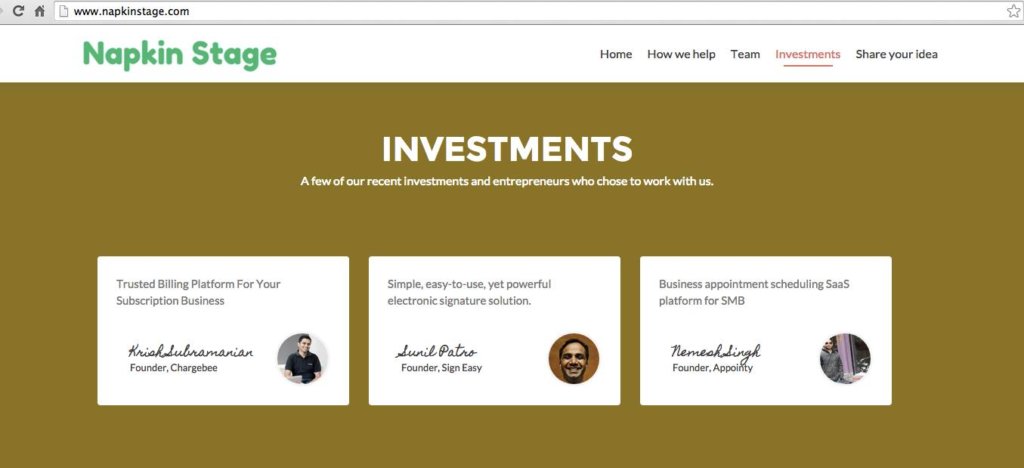
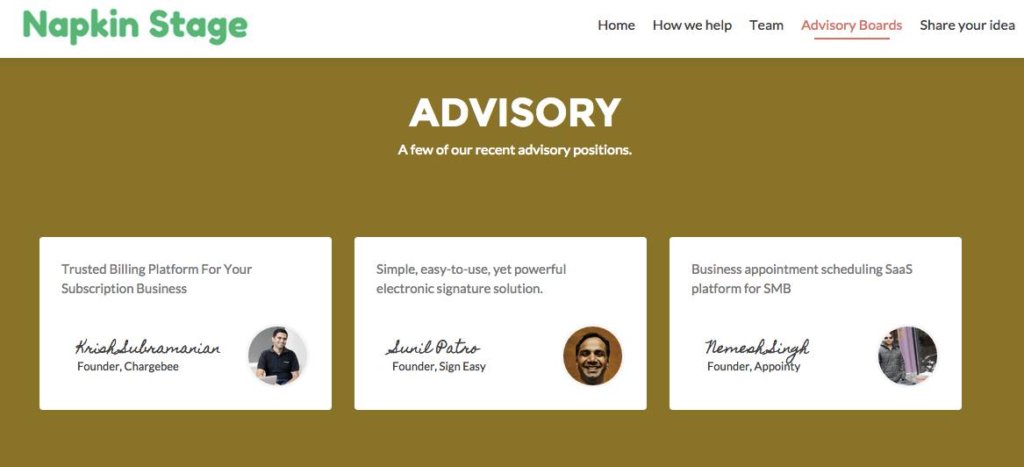
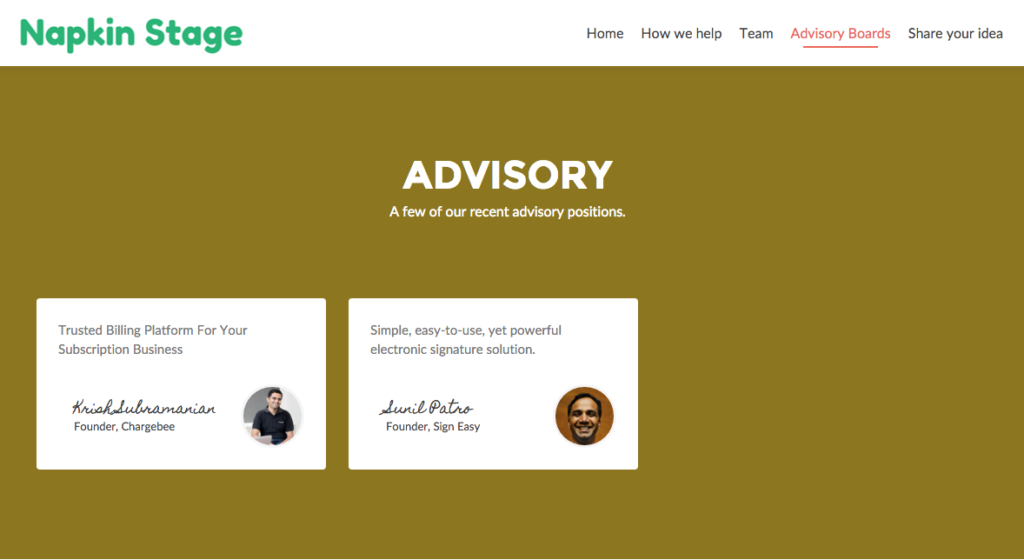


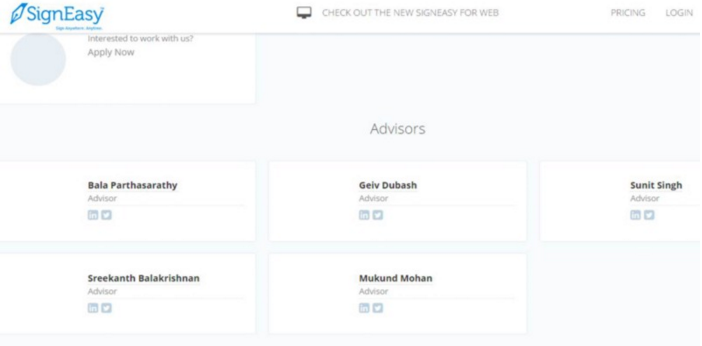
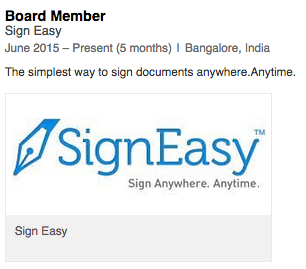
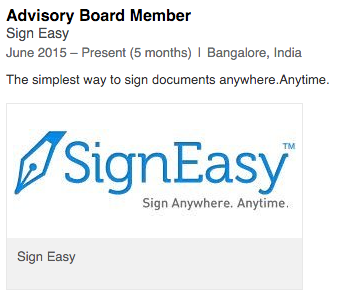

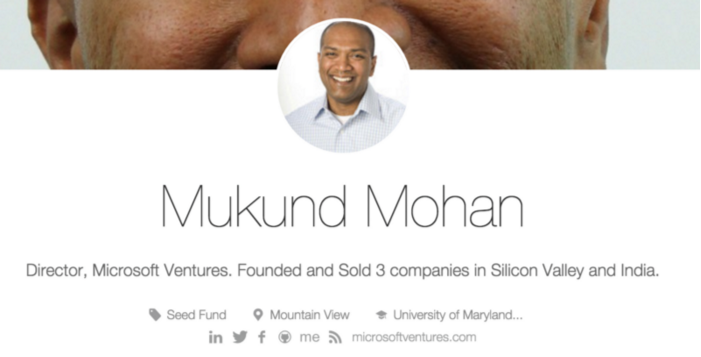

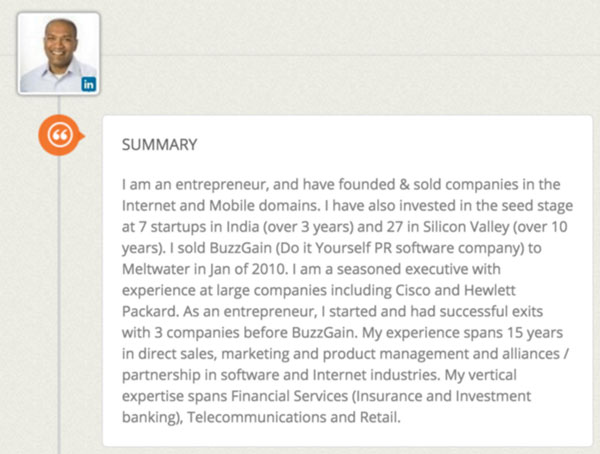

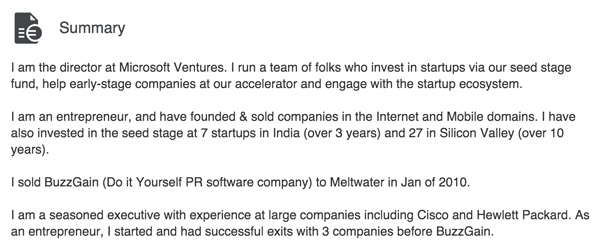


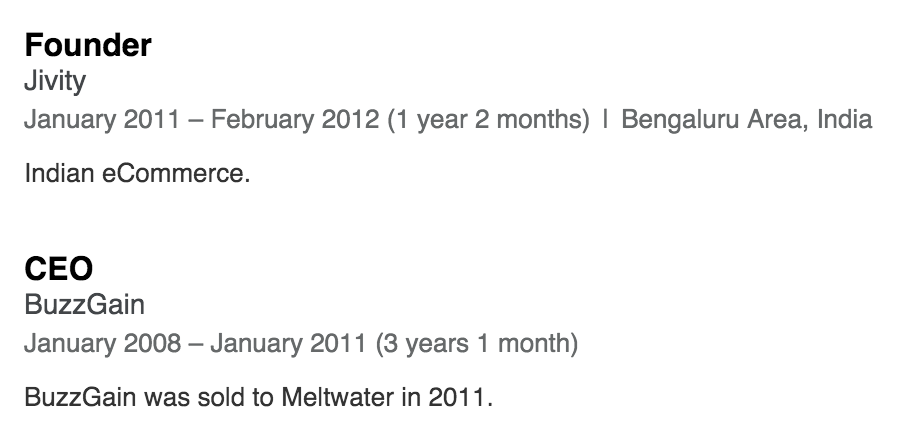





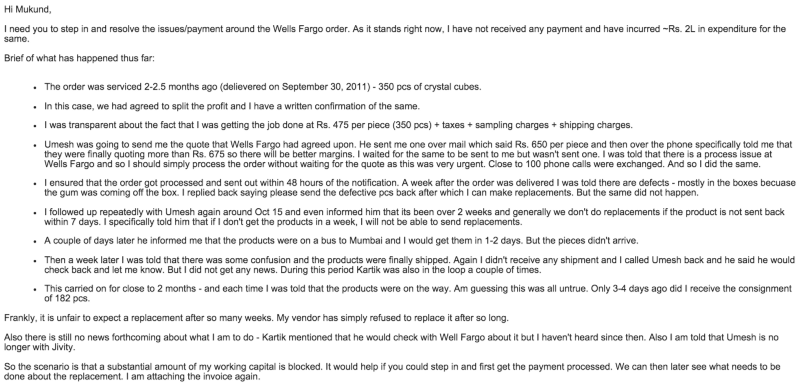









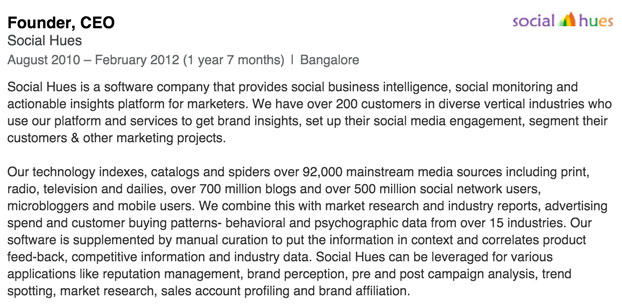
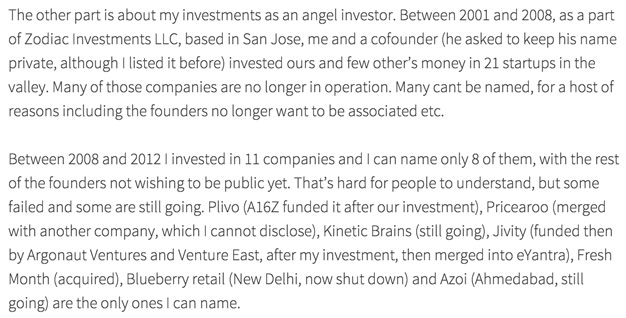
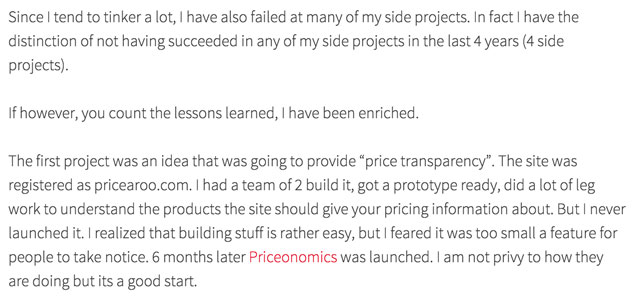
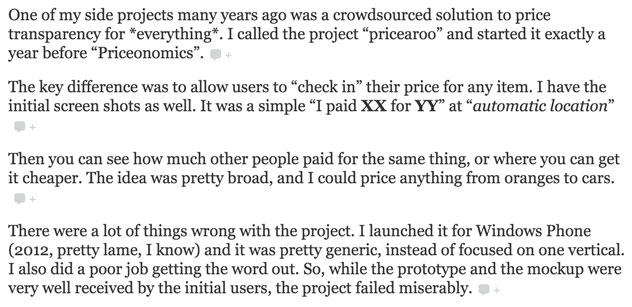






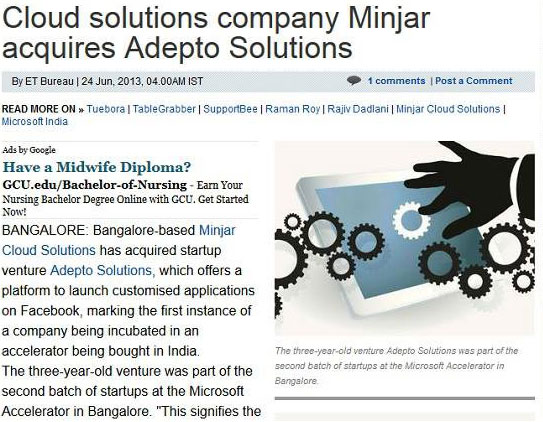














 Arpita Ganesh
Arpita Ganesh
 Manisha Raisinghani
Manisha Raisinghani
 Naiyya Saggi
Naiyya Saggi Aditi Avasthi
Aditi Avasthi Vani Kola
Vani Kola Shuchi Pandya
Shuchi Pandya Suchita Salwan
Suchita Salwan Shradha Sharma
Shradha Sharma
 Meena Ganesh
Meena Ganesh Kanika Tekriwal
Kanika Tekriwal Lavanya Venkatraman
Lavanya Venkatraman Nidhi Verma
Nidhi Verma
 Richa Singh
Richa Singh Anisha Singh
Anisha Singh Swati Bhargava
Swati Bhargava Richa Kar
Richa Kar Priya Maheshwari
Priya Maheshwari Radhika Aggarwal
Radhika Aggarwal
 Preeta Sukhtankar
Preeta Sukhtankar Pranshu Bhandari
Pranshu Bhandari Sairee Chahal
Sairee Chahal Sakshi Tulsian
Sakshi Tulsian Suchi Mukherjee
Suchi Mukherjee Aditi Gupta
Aditi Gupta Upasana Taku
Upasana Taku Valerie Wagoner
Valerie Wagoner Shubhra Chadda
Shubhra Chadda Malini Agarwal
Malini Agarwal Sabina Chopra
Sabina Chopra Chitra Gurnani Daga
Chitra Gurnani Daga Prukalpa Sankar
Prukalpa Sankar Ashwini Asokan
Ashwini Asokan Neeru Sharma
Neeru Sharma astava
astava Rashi Choudhary
Rashi Choudhary Surabhi Dewra
Surabhi Dewra Suruchi Wagh
Suruchi Wagh


 Ritu Soni Srivastava
Ritu Soni Srivastava










